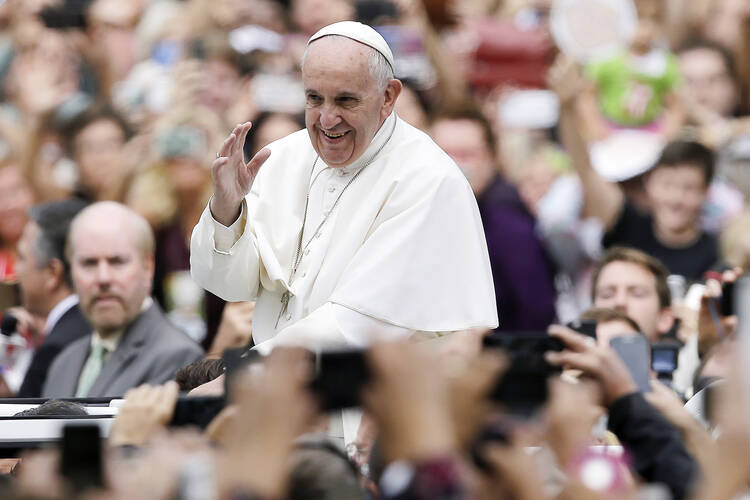History will show that in September 2015, two world leaders visited the United States. One led a nation of 1.4 billion people. The other led a nation of fewer than 500 people. But without question, the winner of this geopolitical encounter between the two nations, which do not have diplomatic relations, was unquestionably the smaller of the two.
The pope, visiting the United States for the first time as the church’s leader after first stopping in Cuba, conducted a master class in how to exercise soft power, something China has wielded clumsily at best, trying a combination of pandas, basketball stars (namely Yao Ming) and even full page ads in The New York Times. Pope Francis enraptured both big and small crowds, leaving them both laughing and crying, be they the U.S. Congress or the tens of thousands that saw him in Philadelphia. Through it all, the pope seemed to just be himself, at least the self that we have become accustomed to seeing.
That approach didn’t work well for President Xi. Earlier in the month, Xi presided over a large-scale military parade in Beijing in celebration of the 70th anniversary of the end of WWII. For that role, he was perfect: he donned a Mao suit, rode in an old-style 1950s Red Flag limousine, and parroted the same words that every Chinese leader since Mao has uttered on such occasions. He then stood on the Tiananmen rostrum and looked serious as the soldiers and armaments filed past. A Chinese audience expects that from their president. An American audience most certainly does not.
If anything, the lesson China is likely to take from the September 2015 Battle for America is this: the pope is an extremely charismatic figure, and both his style and message are potent. At a time when China and the Vatican are making perhaps their most earnest efforts ever at establishing some kind of official relations, it is the pope that has suddenly gained a very distinct upper hand.








